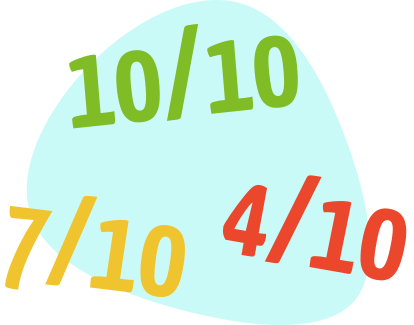It’s one of those questions we get all the time, and there is no easy answer. The question is “How much should I spend on my Google Ads budget?”
There is no broad answer for this. There are so many variables, and we’ll cover them below.
For the sake of this article, I’m going to talk about regular old Google Ads. The ones that display above the organic search results. I’m not talking about display networks, YouTube, or even ads that display in the map results. Just regular old text ads.
Here are some of the things that affect what your Google Ad spend should be.
How Many Other Shops Are Trying To Buy Ads?
The biggest thing that will dictate your Google Ads budget is the amount of competition you have. Google has limited inventory on page 1 of the search results, and let’s face it, the best place to hide a dead body is on page 2 of Google. There are up to 4 ads that can display above the search results and 4 that can display below the search results. I’m not interested in those 4 at the bottom, so there are really only 4 ad spots I want to show up in.
In a small town where there are a small number of auto repair shops and an even smaller number who are running Google Ads, you can have a fairly low budget. If there are only 3 shops running ads in your geographic area, you can all have a place on the top of page 1, so your budget can be fairly low. You may be able to get away with spending less than $500 per month.
If you’re in an area that has a large, dense population (think Houston or Atlanta) you’re going to have to spend significant money to see results from your ads. In our agency, we won’t even consider running ads for an auto repair shop in a major city like Houston if they aren’t willing to put at least $3000 per month into their ad spend. We’ve learned from experience that the ROI is never there with a small budget in a big city unless you have a very specific service you’re running ads for (see more below about this).
That being said, if you’re willing to spend the money, it can pay off big. In large metro areas, $10k or more per month is not out of the question.
But many shops fall into that middle ground and are located in areas with populations in the 25k to 80k range. We usually see an ad spend of $1000 to $1500 per month with these shops and it produces a nice ROI.
How Good Are Your Ads?
All ads aren’t created equal. Words are important; people respond to some words and not others. Great Google Ads managers are great copywriters or part of a team with great copywriters.
A Google Ad has a few different parts. All of them matter. An ad is comprised of:
- Headline
- Subtext
- URL
- Extensions
People will subliminally look at every piece of the ad. Let’s look at the URL, for example.
A searcher is looking for a shop to diagnose their check engine light. The URL in the ad is one of the following 2 URLs.
Which of these two URLs tells the searcher they have found the right shop to diagnose their check engine light?
But setting this up takes a lot of time, and people can be lazy. Is the person managing your ads lazy?
Enter The Ad Quality Score
Google Ads has a metric called the Ad Quality Score. It is a rating from 1-10. The higher the ad quality score, the better your ads will perform, and they will cost you less.
Let’s look at the following example.
Shop A has an ad that was hastily written by someone who doesn’t value the importance of great copywriting in marketing, or they work with a behemoth agency that just copies and pastes ad sets between all of their clients. For every 100 times their ad is shown, two people click. They have a 2% CTR (click-through rate).
Shop B has an ad that a rock star copywriter wrote. This person just gets it and knows how to write copy that sells. For every 100 times their ad is shown, seven people click. They have a 7% CTR.
Shop A is bidding $10 per click. They have to because their ad sucks. Shop B is bidding $4 per click.
For every 100 times Google shows Shop A’s ad, they make $20. (2 clicks at $10 per click)
For every 100 times Google shows Shop B’s ads, they make $28. (7 clicks at $4 per click)
It’s in Google’s best interest to prioritize Shop B’s ads because their ads get clicked on much more, and they make more money from Shop B. Shop B is happy because they have a low CPC and a high CTR, which is exactly what every auto repair shop owner should be looking for in their Google Ads.

What Keywords Are You Competing For?
Not all keywords cost the same. Every auto repair shop out there is competing for the keyword “auto repair.” Because this is such a highly contested keyword, it stands to reason that it will cost much more. Your high-dollar keywords for an auto repair shop are usually:
Auto repair
Auto repair shop
Auto repair near me
Mechanic near me
Tires
Tire store
New tires
Oil change
These are the most searched terms that people use when looking for an auto repair shop. It costs more for your ads to display when someone searches for one of these terms.
This is where specialty shops have an advantage.
Shops that specialize in a few brands of vehicles can capitalize on brand-specific or repair-specific searches. For example, a shop that specializes in diesel trucks can do ads that display when people are searching for things like:
Cummins diesel mechanic
Powerstroke injector replacement
Duramax EGR cooler repair
Specialty shops tend to see the same repairs over and over. Usually, the owners of brands that shops tend to specialize in will search using the brand name. So a driver of a BMW is much more likely to search for “BMW Service” than “auto repair near me.” A driver of a Monte Carlo doesn’t typically search for “Chevy Service.”
But even generalist shops can work the system. They should run ads that will display keywords of the services they offer. Services like:
4 wheel alignments
Headlight restoration
State inspections
Interstate battery dealer
Or, if you know of a common failure that you are making good money on, you might run an ad for that. Terms like “RAM truck evaporator replacement” won’t get near as many searches as “auto repair,” but it will provide a huge ROI when it lands you a job.
When you are starting with a smaller ad budget, focus on terms like this instead of blowing your budget in a short time on the more common keywords.
What’s Your Overall Ad Budget?
I want to be clear. There is definitely some speculation in this section, but it makes sense. Think about it.
How much is your overall ad budget?
Again, Google has a limited inventory for ad spots. Everyone wants to be on page 1 in position 1. But there is only one of that spot per keyword / per geographic area.
So let’s look at the scenario below.
Shop A has a monthly ad budget of $500. Shop B has a monthly ad budget of $5000.
Both shops are located in Charlotte, NC, within a mile of each other. Both are competing for the term “Auto Repair Shop.” Both have great ad copy and similar ad quality scores.
Shop A has an approximate daily ad spend available of $16.66. Let’s say the CPC (cost per click) for this keyword is $6. This means Shop A can get two clicks per day. They’re probably hitting their budget by 9 am.
Shop B has an approximate daily ad spend available of $166.66. At the same CPC of $6, Shop B can get 27 clicks per day.
Google has one page 1 / position 1 available. Why would they ever reward Shop A with that spot?

Don’t Waste Your Money
There are a lot of ways to waste money with marketing. Having too low of an ad budget is one of those ways.
If you’re working with an agency and they are letting you run an ad budget of less than $500, unless you’re in an area with little to no competition, you’re probably not seeing a return on your investment. You’re probably experiencing a loss.
If you’re of the idea that you want to start small and work your way up, it probably won’t work. If your ad budget is too small, you’ll never see the return that will encourage you to put more money into it. Google didn’t become the company they are by providing a service that doesn’t work. Google Ads work when you work Google Ads. Trust that it works and commit to a budget that makes you uncomfortable. In a short time, you’ll be telling your ads manager to spend more. We see it every day.




